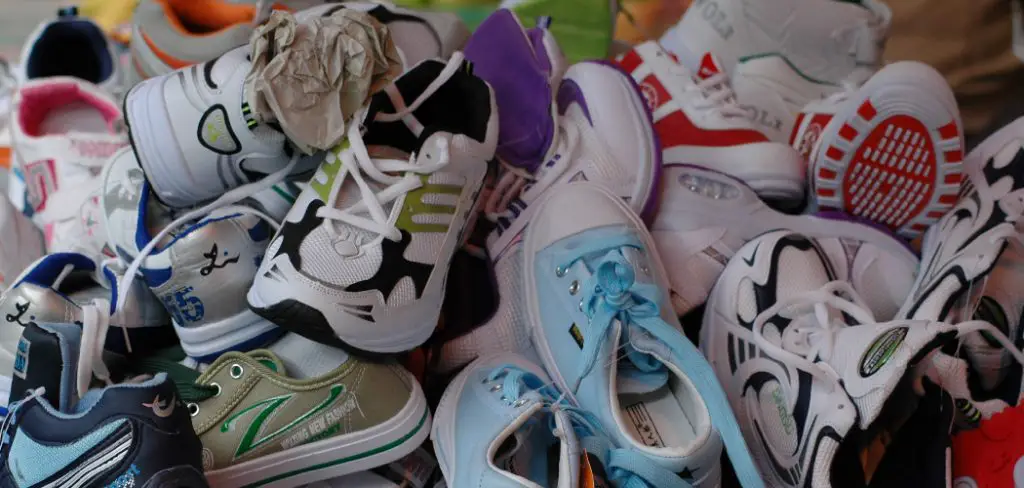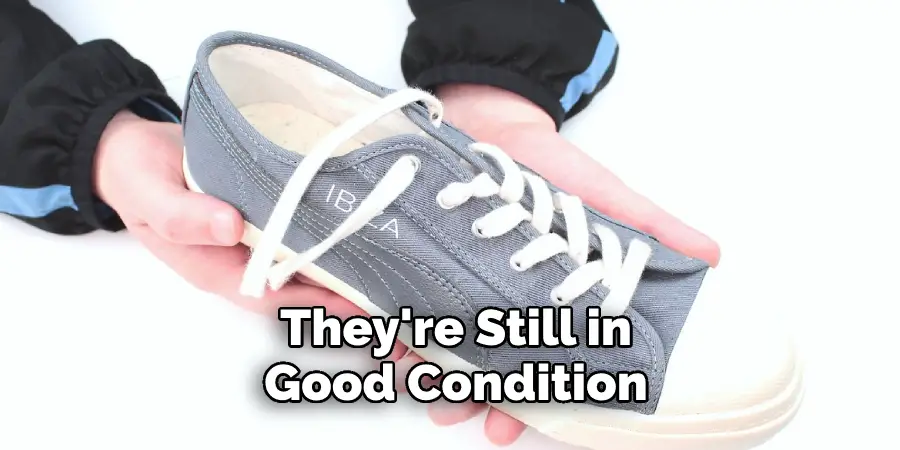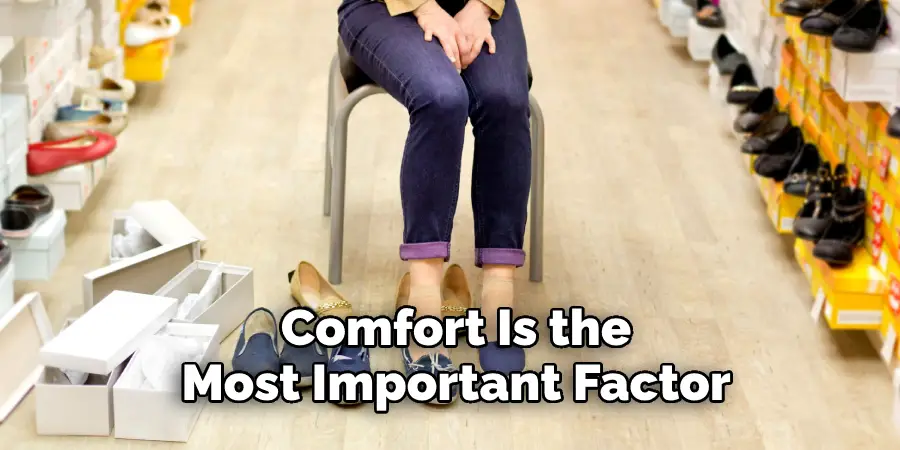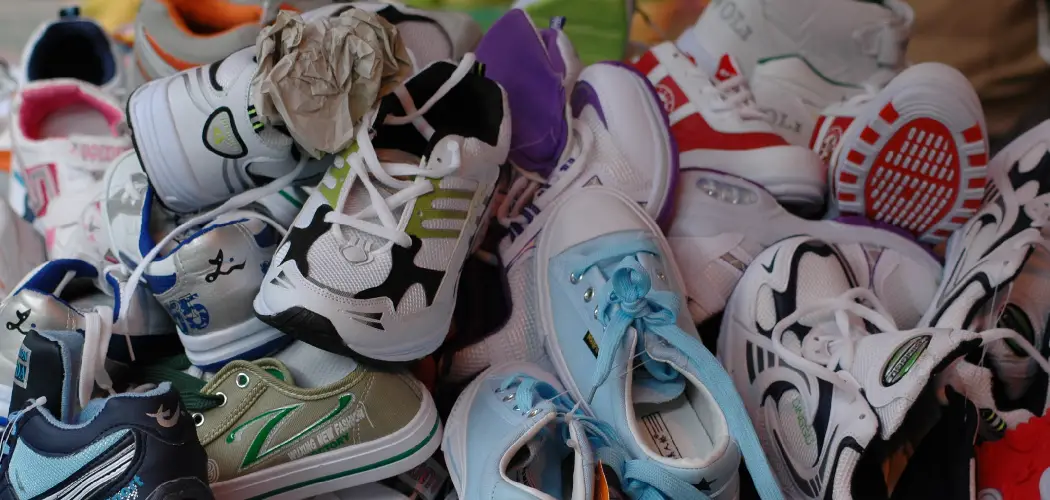Most of us know that we need to replace our running shoes every few months or so, but what about our everyday shoes? How often should those be replaced? The answer may surprise you.

According to recent research, most people should replace their everyday shoes every six months. So if you’ve been rocking the same old pair of sneakers since last summer, it might be time for an upgrade. Here are some general tips on how often should you replace everyday shoes in this blog post.
Summary: Your everyday shoes, whether they are sneakers or dress shoes, should be replaced every 300 to 500 miles or every six to eight months. This varies based on your activity level and the amount of wear and tear your shoe experience on a daily basis. It’s important to replace your shoes regularly to avoid discomfort and injuries and ensure proper support for your feet.
Is It Ok to Wear the Same Shoe Everyday
If you’re like most people, you probably have a go-to pair of shoes that you wear on a daily basis. While it’s certainly ok to wear the same shoes every day, you should be aware of how often they need to be replaced.
As a general rule of thumb, you should replace your everyday shoes every six to twelve months. This may seem like a short amount of time, but it’s important to remember that everyday shoes take a lot of wear and tear.
Think about it this way: if you wear the same pair of shoes every day, they are going to get dirty and scuffed much faster than if you only wore them once in a while. Additionally, the soles of your shoes will wear down over time, which can make them less comfortable and more difficult to walk in.
So if you’re wondering how often you should replace your everyday shoes, the answer is every six months. However, there are a few exceptions to this rule. For example, if you have a pair of shoes that you only wear on special occasions, you can probably get away with replacing them every year or two.

Additionally, if you have a pair of shoes that you absolutely love and they’re still in good condition, you may be able to stretch their lifespan to 18 months or even longer. At the end of the day, it’s important to listen to your shoes. If they’re starting to look worn out or feel uncomfortable, it’s probably time for a new pair.
7 Ways on How Often Should You Replace Everyday Shoes
1. Inspect Your Shoes Regularly.
It would be best if you inspected your shoes regularly for wear and tear. Look for holes, tears, or signs of fraying. If you see any of these things, it’s time to replace your shoes. To extend the life of your shoes, you can patch them up or sew them up. The bottom line is, if you see any damage, it’s time for new shoes.
2. Check the Soles of Your Shoes.
The soles of your shoes will also show signs of wear and tear over time. If you see any cracks, holes, or chunks missing from the sole, it’s time to get a new pair of shoes. Worn-out soles are a tripping hazard, but they also can’t provide the same level of support and cushioning as a new pair of shoes.

3. Check the Heel of Your Shoe.
Inspect the heel of your shoe. A hole or a tear in the heel means it’s time for a new pair of shoes. Also, if the heel is completely worn down, it’s time to get new shoes. New shoes will provide better support and will help you to avoid injury. The bottom of your shoes can also tell you a lot about when it’s time to get new ones. If you see cracks, this is a sign that the shoes are dry and need to be replaced.
4. Check the Uppers of Your Shoes.
The uppers of your shoes are the parts that cover your foot. They can be made from a variety of materials, including leather, mesh, or synthetic fabric. If you have shoes with laces, the laces are also part of the uppers. Check the uppers of your shoes regularly for signs of wear and tear. If the material is ripped or torn or the laces are frayed, it’s time to replace your shoes.

5. Check for Comfort.
Perhaps the most important factor in deciding when to replace your shoes is comfort. If your shoes are no longer comfortable, it’s time to get new ones. Shoes that are too tight can cause blisters, while too loose shoes can cause you to trip and fall. When your shoes are uncomfortable, it’s time to find a new pair that fits better.
6. Look for Signs of Wear and Tear.
Worn-out shoes can be dangerous. If you see any holes, tears, or fraying, it’s time to get rid of your old shoes and find a new pair. Also, be sure to check the soles of your shoes. If they’re starting to wear thin, it’s time for a new pair. Worn-out shoes can cause you to trip and fall, so it’s important to be safe and replace them when necessary.
7. Listen to Your Body
Your body will often give you hints that it’s time to get new shoes. For example, if you find yourself getting more blisters or foot pain, it might be time for a new pair of shoes. Also, if your shoes don’t feel right, it might be time to replace them. So trust your instincts and get new shoes if you think it’s time.

How to Extend the Life of Your Shoes
Choose the right shoes for your activity. Don’t wear the same pair of shoes every day. If you do, they’ll break down faster. Please give them a rest. Use shoe trees. Shoe trees help shoes keep their shape and can help prevent creases. Keep them clean and polished. A little bit of TLC can go a long way in making your shoes last longer. Finally, be mindful of the weather. If it’s raining or snowing, don’t wear your best shoes. The wet weather will damage them.
Replace your shoes when needed. Even with the best care, shoes don’t last forever. So pay attention to how they look and feel. If they’re starting to show wear and tear, it’s time for a new pair.
When to Replace Your Shoes
The general rule of thumb is to replace your shoes every 350-500 miles. But this can vary depending on the type of shoe, how often you wear them, and your individual stride. For example, if you notice any pain in your feet or legs when you run, it’s likely time for a new pair of shoes.
If you are a heavier runner, you may need to replace your shoes more often than someone who is lighter. This is because the extra weight puts more wear and tear on the shoes. Also, if you run on pavement all the time, your shoes will wear out faster than if you run on softer surfaces like trails.
Frequently Asked Questions
Should You Change Your Shoes Everyday?
It depends on your personal preferences and hygiene standards. Some people believe that it’s important to change your shoes every day to prevent bacterial growth, while others say that it’s not necessary and that shoes will eventually become dirty anyway. Ultimately, it’s up to you to decide if you think it’s necessary to clean your shoes every day.
When Should You Replace Your Shoes?
It is important to replace your shoes every 6-12 months, depending on the type of shoe you are wearing. For example, if you are wearing a dress or sandal that doesn’t require corrective styling, then it may be ok to wear them for up to 2 years. If you’re using clogs or rain boots regularly, then it might be prudent to replace them every 3-6 months. And finally, if you’re frequently walking in heels or other high-heeled shoes, then it’s recommended that you replace them at least once per month.
There is no one definitive answer when it comes to when Shoes Should Be Replaced; what matters most is ensuring that your feet are comfortable and protected from injury. Continually checking the condition of your shoes and replacing them as needed will help make this happen!
Will New Shoes Spoil if Not Worn?
Most experts believe that new shoes will not spoil if they are not worn. This is because the rubber or other materials used in new shoes may self-destruct over time due to moisture and exposure to air. In fact, some shoe companies even package their products in such a way as to prevent them from spoiling. So long as your new shoes are stored properly and do not come into contact with water or dirt, they should last for several months or even years if you take care of them!
Is It Ok to Wear the Same Shoe Everyday?
While there are some benefits to wearing the same shoe every day, it’s not always a good idea. This is because Shoes take a lot of time to break in and form their own shape over time. As a result, they can be much more comfortable when you first wear them but may become uncomfortable after prolonged use. Additionally, if you have sensitive feet or conditions like plantar fasciitis, your shoes might cause even more pain and inflammation.
If you’re only going to wear one pair of shoes for an extended period of time (like 6-8 months), then it may be ok to do so. However, make sure that they are well-cushioned and designed with breathability in mind so that they don’t get too hot or sweaty on long walks or runs. And lastly, consider getting new shoes once per year instead of depending on the same pair all the time!
Conclusion
So, how often should you replace everyday shoes? Unfortunately, the answer is not as straightforward as you might think. Depending on the type of shoe, how often you wear it, and other factors such as climate and moisture levels, most experts recommend replacing shoes every six to eight months. However, if you’re like most people and only wear a pair of shoes a few times a week, they could last up to a year or more. Ultimately, it’s important to be mindful of the condition of your shoes and make replacements when needed. By following these simple tips for choosing and taking care of your everyday footwear, you can keep your feet looking and feeling great for years to come.


